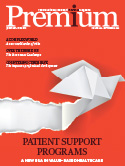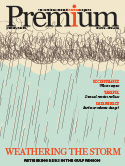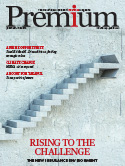New Health Insurance Law plan to save USD530.3mn

A long-term plan aimed at putting a cap on government medical spending by 2038 will start with the new national health insurance scheme.
Supreme Council for Health (SCH) chairman Dr. Shaikh Mohammed bin Abdulla Al Khalifa said current annual public spending on health averaged BHD480 million with the government contributing around BHD350 million.
Under the current healthcare system, by 2038 the government would be spending BHD1 billion annually but under the new National Health Insurance Law, approved by the Shura Council recently, it would be BHD800 million, resulting in a saving of BHD200 million.
“The new health insurance scheme takes into account all variables aimed at controlling government spending and not lowering it,” said Dr. Shaikh Mohammed.
“The variables include population growth, new advancements in the market, new illnesses and possible treatments.
“The law will generally govern the scheme which we are planning to launch officially in January next year, and we will ask for amendments only when necessary.
“The current legislative format will help us kick-start a revolutionary scheme and only time will show its effectiveness; we have already put it in a test phase at the A’ali Health Centre with special cards distributed to the area’s residents.”
Dr. Shaikh Mohammed said the medical cost per Bahraini annually will be between BHD300 and BHD350 and the scheme’s operational costs will not exceed five per cent of its allotted budget.
Expatriate home workers, including housemaids, drivers, gardeners and nurses, will be covered for free under the scheme. A total of 105,000 domestic workers registered in Bahrain would be granted the same health privileges as Bahrainis, with no extra charge for their employers.
The National Health Insurance Law will see the government shoulder the cost of 19 categories of medical care for Bahrainis, as well as their domestic staff.
However, other expatriates will have to contribute to their medical costs in 16 of the 19 categories – excluding primary and limited secondary healthcare and emergencies – since they will enjoy only partial health coverage, paid for by their employers.
Charges for expat health insurance will be made through the Labour Market Regulatory Authority (LMRA) when work permits are issued or renewed.
Legislators have left it to the SCH to determine the additional fees expats will have to pay for each medical service, the rest of which will be covered by their insurance.
The services that will be provided free for Bahrainis and expat domestic workers include medical check-ups, diagnosis, treatment and primary healthcare; laboratory examinations and X-rays; operations; maternity and child care; hospitalisation for treatment and rehabilitation; dentistry excluding unnecessary cosmetic procedures; psychiatric treatment and consultation; physiotherapy; In Vitro Fertilisation (IVF); liposuction; cosmetic surgery; medicines required for treatment; medical aid devices; cost of one travel companion if the case requires it; ambulance services; long hospitalisation; chronic illnesses; and any services added later by the SCH.
Bahrainis will be able to seek these services for free at government-owned medical facilities. Those choosing private sector hospitals or clinics will have to pay no more than 40 per cent of the cost, with the government picking up the balance. GCC citizens, expatriates married to Bahrainis and children of Bahraini mothers will receive the same benefits, according to a report by Gulf News Daily.
The law also paves the way for a new National Health Insurance Authority, which will invest funds to generate income and will also accept donations. Foreign visitors to the country will also be covered for emergency healthcare, although the cost of visas will increase as a result. BDF personnel are not included in the law, but their medical facilities are optional under the scheme.





































